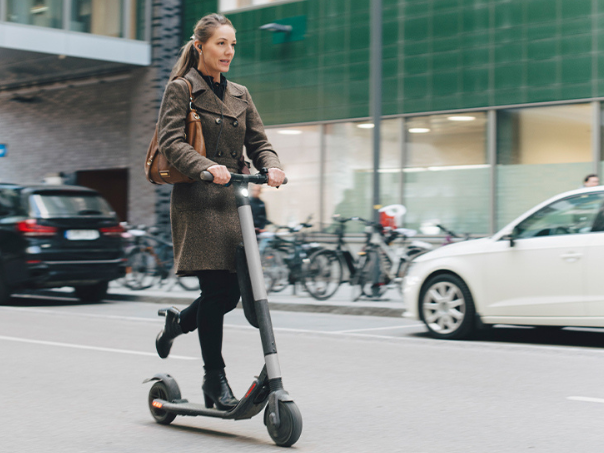INSIGHT
How to find the sustainable travel sweet spot
With sustainable travel taking centre stage in recent years, new questions are being raised around the cost of business travel to the planet, the traveller and the business.
For example, is a travel booking that ticks the environmental box, also sustainable for a traveller’s wellbeing? Or does meeting one or two of your business travel goals, mean that it’s necessary to make a trade-off somewhere else?
Corporate Traveller New Zealand looks into the facts and the myths, to help define what ‘sustainable’ travel really is today – for travellers, travel budgets and travel managers.
“Nearly 70% of consumers said they would be willing to sacrifice convenience to be a more sustainable traveller."
Source: Research by Expedia Group Media Solutions, March 2022.

Fact or myth?
There are many assumptions and fallacies around sustainable travel that are either outdated or not based on fact. For example, many corporates, and individual travellers, tend to assume that sustainable travel options cost more. The reality is that many options are equally cost-effective, and plenty deliver a win-win result for both sustainability and your company’s bottom line.
It’s fair to say however, that when you add another element into the mix – such as traveller wellbeing – it’s a much more complex juggling act. While research shows that many travellers are happy to shoulder a few inconveniences for the benefit of the planet, keeping business travellers happy does require a bit of give and take.
At the end of the day, a comfortable and well-rested traveller is going to be a more productive traveller, but where does that leave your budget and the planet? Ultimately, every business needs to make their own call when it comes to aligning their values, with their travel budget. To help you with the nitty gritty, Corporate Traveller New Zealand looks at some common travel scenarios to see who benefits the most – and the least!
Sustainability
-
So you’ve booked a direct flight from A to B. Woo hoo! – says the traveller who wants streamlined travel, while the planet also benefits as less emissions are created when flying direct. The potential downside? Direct flights generally will cost more, versus a flight with two sectors or a stopover. However, if you book well in advance, or lock in strong airline partnerships, the cost to your business can be minimal.
-
Fortunately for New Zealand business travellers, the country has a wide range of ‘green’ hotel chains with excellent sustainability credentials. With more and more embedding environment practices into their everyday operations, their rates are often just as competitive as other properties. So that’s a win-win.
Traveller wellbeing
- Planning a business trip over consecutive days to a number of locations might sound more efficient, but it can take a toll on traveller wellbeing. Packing more meetings into a shorter time frame with less flights may be more economical and sustainable, however travellers can find it more stressful, they miss out on family time and they may return to the office with a big workload to catch up on. So it’s not necessarily ideal for wellbeing.
- What about travelling business class or by private jet? Yes please, I hear you say! It no doubt makes for a more comfortable travel experience, but it is not always cost-effective and both options produce more emissions per passenger.
Cost-effectiveness
-
Rail travel is more sustainable than flying, and potentially more relaxing for the traveller, however outside of a few places, such as Europe, it’s not always practical. New Zealand for example has a small rail network more suited to tourist travel, with limited routes, departures and flexibility. In New Zealand it is often more expensive than flying too – with an Auckland to Wellington rail ticket potentially costing over $200 one-way.
-
Early flight departures, or late returns, often coincide with cheaper airfares, but they also add up to a longer day for weary business travellers. Plus night-time flights are worse for the planet, as aircraft contrails trap in the heat generated by the planet during the day. However, due to New Zealand’s relative isolation, international night flights can be hard to avoid as departures and arrival times need to link up with other global airline partners.
Here are a few other business travel conundrums and the sustainability impacts that you may not have considered.
We told you it was complicated!
The good news is that a bit of give and take between a company and its business travellers, can help keep most people happy most of the time – while considering sustainability. It’s also vital to keep the lines of communication open with your business travellers, so they are aware of reasons for your travel policies and choices. That way they might be more receptive if they are bumped to economy, instead of their usual business class seat, because they understand the sustainability reasons behind the change.
For advice on how to design a sustainable travel program, talk to the experts at Corporate Traveller New Zealand.



